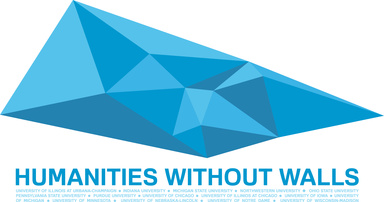
The Andrew W. Mellon Foundation has awarded $3 million for an innovative two-year project, “Humanities Without Walls,” that will include faculty and graduate students at the University of Iowa. In addition to the Obermann Center for Advanced Studies, the collaboration includes 14 humanities centers in the Midwest and beyond.
By leveraging the strengths of 15 major universities, the initiative will create new avenues for innovative teaching and scholarship in the humanities. Through the consortium’s work, the Mellon Foundation seeks to inspire groups of faculty members to envision projects that could not be created or maintained without cross-institutional cooperation.
The Obermann Center will host two information sessions for interested faculty members: Feb. 7 from 8:30 to 9:30 a.m. at the Obermann Center and Feb. 12 from 4:30 to 5:30 p.m. at 2670 University Capitol Centre.
Teresa Mangum, director of the Obermann Center, is part of the planning committee that developed the proposal over the past year.
“Working with this group of brilliant, creative center directors has been inspiring. The Mellon grant will allow scholars to experiment on perhaps the largest scale ever attempted in the humanities. Together, we hope to kindle innovative research leading to the creation of new knowledge and to find imaginative ways to share our discoveries with the larger public,” she says.
The first consortium-wide call for proposals will be issued in August 2014. The Obermann seed grants just announced for summer 2014 will help UI faculty begin planning grant proposals for the first round of consortium awards.
“I am eager to hear from humanities scholars who would like to explore possibilities and look forward to working on this initiative with the College of Liberal Arts and Sciences and the new Humanities Advisory Board. I am also deeply grateful to the Mellon Foundation and to Dianne Harris, director of the Illinois Program for Research in the Humanities at the University of Illinois at Urbana-Champaign, for inviting us to participate,” Mangum says.
The grant, led by Harris, will focus on two initiatives. The first will fund cross-institutional teams of faculty and graduate students whose research focuses on the grand challenges faced by “The Global Midwest.” This initiative is intended to stimulate collaborative research that positions the Midwest as a key site—both now and in the past—in shaping global economies and cultures.
The second initiative will create summer workshops for predoctoral students in the humanities who intend to pursue careers outside the academy. The academic humanities centers will partner with the Chicago Humanities Festival to develop these workshops, which will be held in Chicago. Two graduate students from each partner university will be chosen to participate in the 2015 and 2016 summer programs.
Dan Reed, UI vice president for research and economic development, says the Mellon grant offers an extraordinary opportunity “to experiment with innovative forms of collaborative and interdisciplinary inquiry as well as support more traditional forms of scholarship with our top universities across the Midwest.”
The consortium includes 13 of the institutions that belong to the Committee on Institutional Cooperation (CIC)—Indiana University, Michigan State University, Northwestern University, Ohio State University, Penn State University, Purdue University; and the Universities of Chicago, Iowa, Michigan, Minnesota, Nebraska, and Wisconsin-Madison—plus the University of Notre Dame and the University of Illinois at Chicago.
The humanities centers at the 15 consortial institutions will serve as the hubs for collaboration. The Chicago Humanities Festival and the Graduate School of Library and Information Science at the University of Illinois are also serving as key intellectual and infrastructural partners for the project.
Chaden Djalali, dean of the UI College of Liberal Arts and Sciences, hailed the Mellon Foundation’s support for the humanities.
“More than ever, the humanities are essential to society’s understanding of our place in the world and our future,” Djalali says. “We are delighted to work with the Obermann Center on this visionary and vital initiative for humanities research.”
To help UI teams to prepare for the consortium-wide Global Midwest application process in October 2014 and 2015, the Obermann Center is offering several seed grants of up to $10,000. Thanks to the generosity of the Mellon Foundation, UI faculty members can use these funds to bring colleagues from partner universities to the Obermann Center this summer.
Together, these teams will draft grant applications for the first round of applications. Seven hundred and fifty thousand dollars will available in 2014 and 2015 to fund a number of projects across the consortium. As part of the seed grant, each group will receive assistance and feedback on their draft proposals.
The Obermann Center is hosting two information sessions for faculty members who wish to learn more about the Humanities Without Walls consortium and the Obermann seed grant program. The first meeting is Friday, Feb. 7, from 8:30 to 9:30 a.m. at the Obermann Center. A second meeting will be held Wednesday, Feb. 12, from 4:30 to 5:30 p.m. in the Vice President for Research and Economic Development Conference Room, 2670 University Capitol Centre. The deadline for seed grant proposals is March 14.
For questions about this program or to schedule an appointment with Obermann director Teresa Mangum regarding a potential project, email Erin Hackathorn at erin-hackathorn@uiowa.edu.